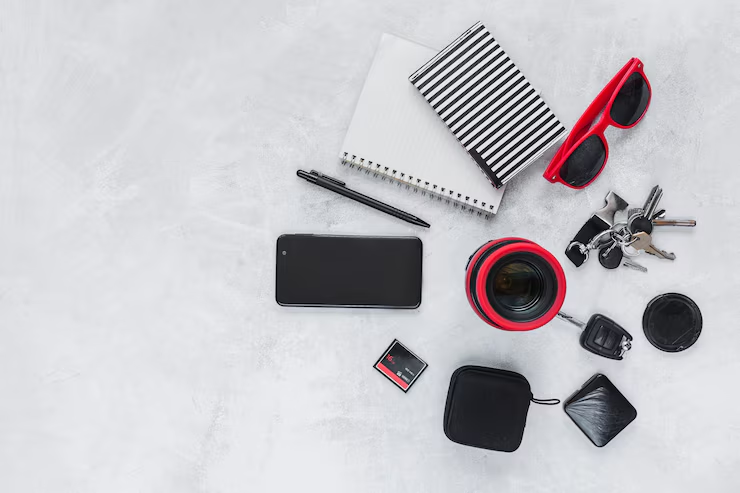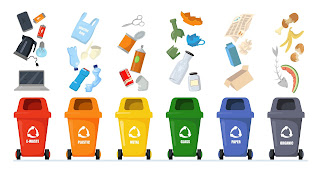Swag Companies: Choosing the Right Partner for Purposeful Branding
In today’s hyper-competitive business world, standing out requires more than digital ads and flashy social media content. One of the most underrated yet highly effective marketing tools continues to be branded merchandise—commonly known as swag. From custom notebooks to eco-friendly tote bags, swag connects brands to people in tangible, lasting ways. But not all swag is created equal, and not all providers offer the same value. That’s why finding the right swag companies matters more than ever.
Whether you’re planning for an upcoming conference, launching a new product, or onboarding remote employees, working with a trusted swag company can elevate your brand presence, create memorable experiences, and even contribute to your sustainability goals.
What Do Swag Companies Actually Do?
Swag companies are more than just vendors. At their best, they are creative partners who bring your brand to life through carefully selected promotional products. From product sourcing and design to customization and logistics, they handle all the moving parts of your swag campaign so you can focus on your strategy.
Some specialize in specific industries (like tech or education), while others offer end-to-end swag management solutions for large enterprises. The best ones also stay ahead of trends and offer curated collections, sustainable options, and full-service fulfillment to make your swag programs efficient and impactful.
What to Look for When Choosing a Swag Company
1. Product Curation and Quality
Great swag starts with great products. Look for swag companies that offer a curated selection of high-quality items. This shows they’ve done the legwork to identify products that are functional, stylish, and likely to be kept—not tossed. Quality over quantity is a smart mantra here. A sleek, useful item leaves a stronger impression than a pile of generic giveaways.
2. Customization and Branding Options
Can they match your exact brand colors? Offer unique packaging? Create co-branded items with subtle, modern design? Swag should reflect your brand’s identity—clean, consistent, and compelling. A good swag company will help you do more than print a logo; they’ll help you make your brand stand out through thoughtful customization.
3. Sustainability Commitment
Sustainability is no longer a bonus—it’s an expectation. Choose swag companies that offer eco-friendly products and prioritize ethical sourcing. Look for items made from recycled materials, organic cotton, bamboo, or biodegradable packaging. Even better if the company offsets emissions or donates a portion of profits to environmental causes.
4. Global Fulfillment and Logistics
Do you have teams across the country—or the world? Look for companies that offer global shipping, inventory management, and online swag portals. That way, you can create consistent swag experiences for your customers, employees, or event attendees no matter where they are.
5. Customer Service and Flexibility
You want a swag partner who listens, adapts, and solves problems quickly. Are they easy to reach? Do they offer samples or mockups? Can they work with tight deadlines or custom requests? The best swag companies go beyond transactions and deliver solutions tailored to your brand's needs.
Why Swag Still Works in 2025
Despite the dominance of digital channels, physical brand experiences still matter. In fact, swag performs best when used strategically as part of a multi-channel marketing effort. It creates physical touchpoints in an otherwise digital world, deepening engagement and making your brand more memorable.
Here’s how businesses are using swag today:
-
For virtual events: Sending curated swag boxes to attendees creates excitement and connection.
-
For client retention: Thoughtful gifts like custom tech accessories or eco-friendly kits help reinforce relationships.
-
For employee experience: Swag can boost morale, celebrate milestones, and make new hires feel like part of the team.
-
For social impact: Brands now co-brand items with mission-driven messages, turning their swag into a force for good.
What’s important is that swag isn’t viewed as “just stuff”—it’s a channel. And like any marketing channel, it should be aligned with your values, audience, and goals.
Avoiding the Common Pitfalls of Branded Swag
Swag can be powerful, but it can also go wrong. Cheap, wasteful products can damage your brand image. Overordering can lead to storage issues and unnecessary waste. Outdated designs can reflect poorly on your attention to detail. That’s why planning matters.
Before launching a swag campaign, ask yourself:
-
Who is this for?
-
What do I want them to feel or do?
-
Will this item be useful, memorable, and on-brand?
-
What’s my plan for leftovers?
A little intention goes a long way—and partnering with the right swag company makes all the difference.
SwagCycle: The Missing Piece to a Truly Responsible Swag Strategy
Even with the best planning, there are always leftover items—branded hoodies from a past event, outdated logos on tech gear, or simply overstock. Disposing of this swag is tricky. It’s branded, so you can’t donate it just anywhere. And sending it to a landfill clashes with sustainability goals.
That’s where SwagCycle steps in. We help companies responsibly manage the end-of-life of their promotional products. Through recycling, repurposing, and donation, SwagCycle ensures that unused swag gets a second life—helping nonprofits, supporting circular design, and aligning your marketing strategy with your environmental values. Instead of letting your old swag become waste, SwagCycle turns it into an opportunity for impact.




Comments
Post a Comment